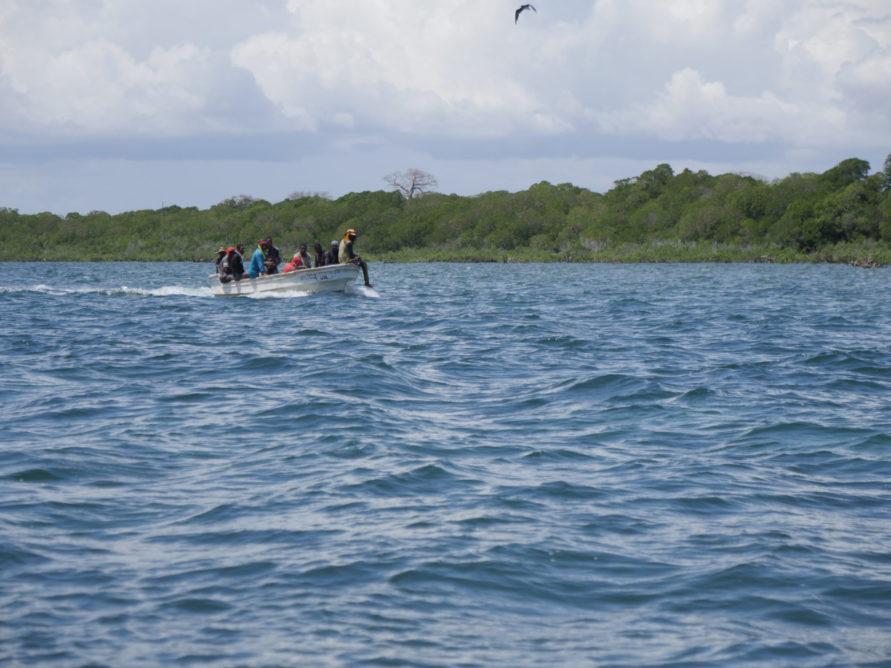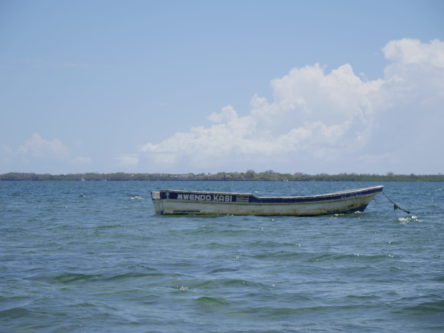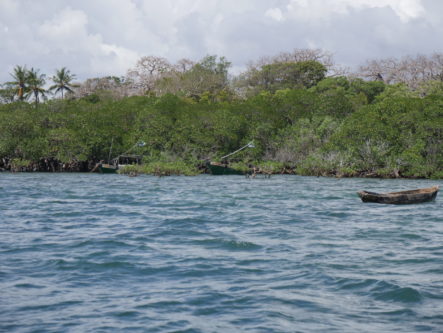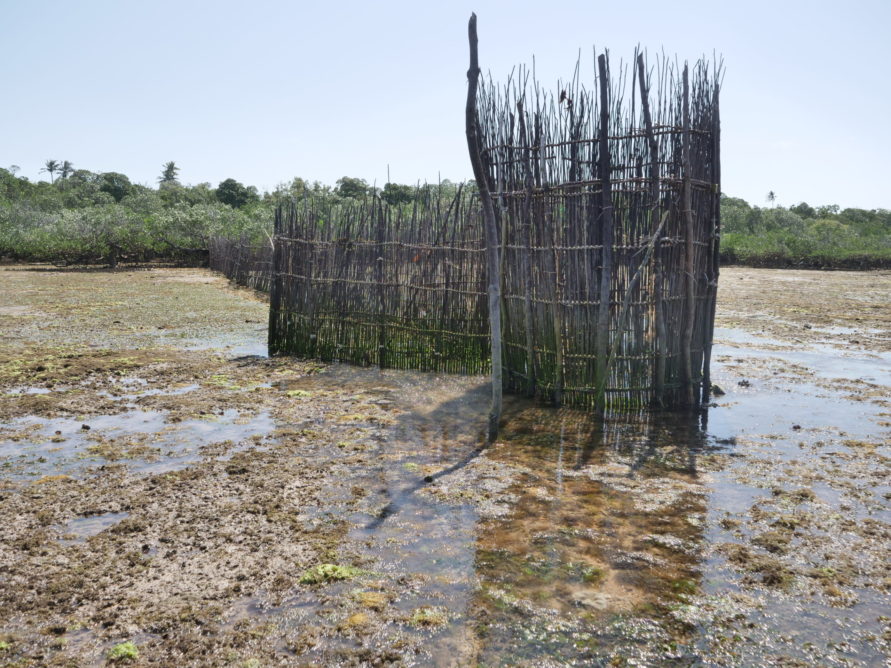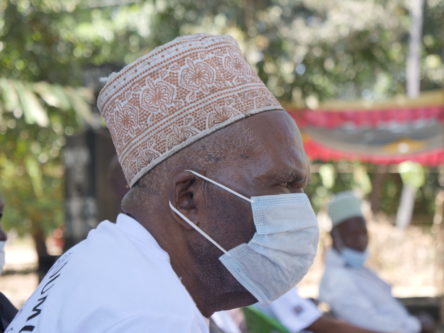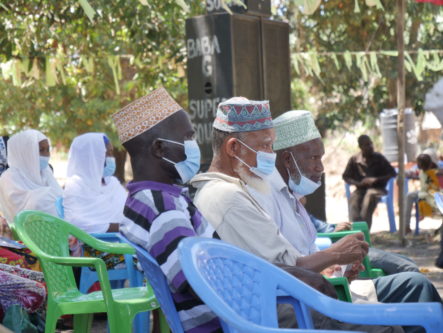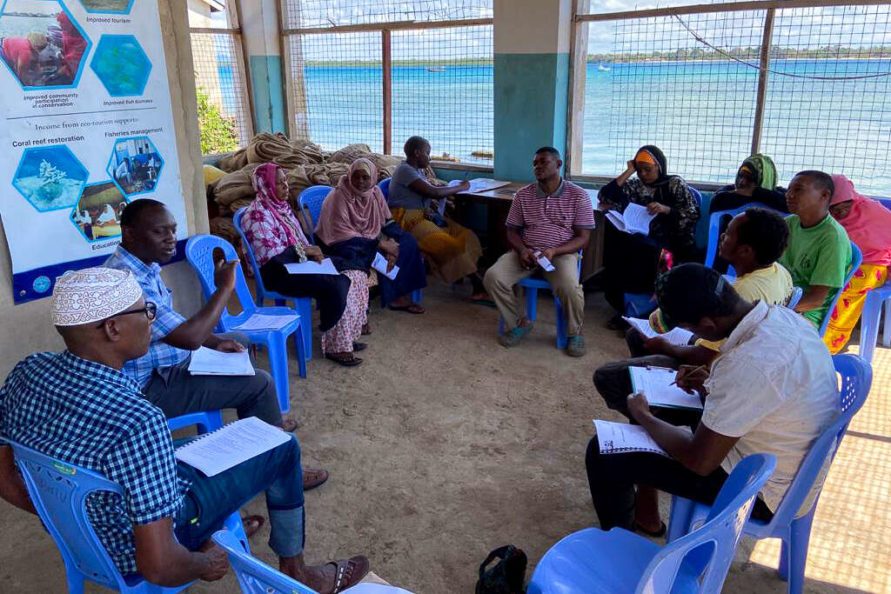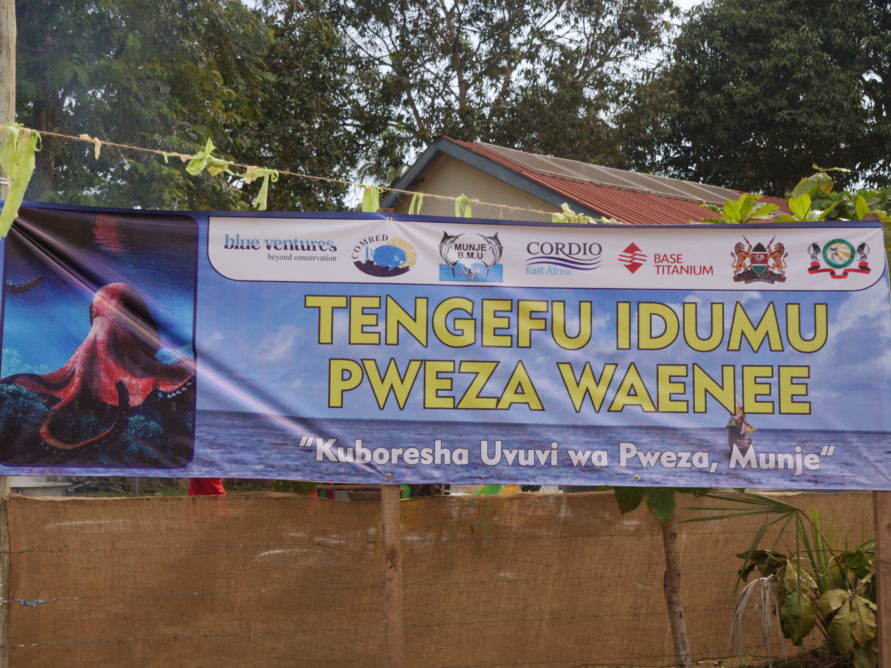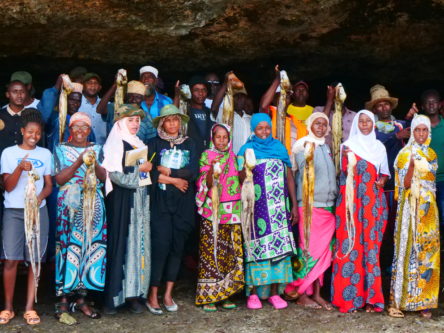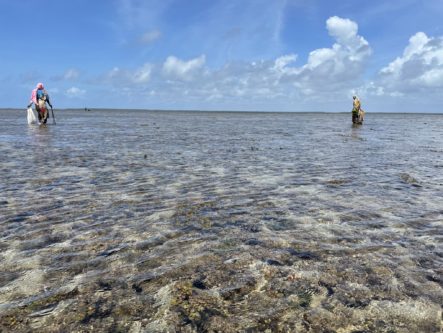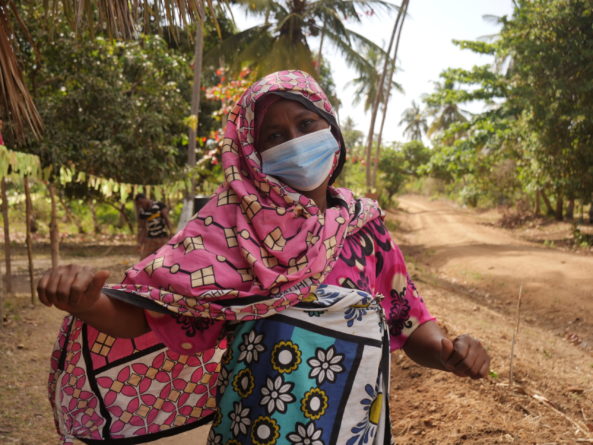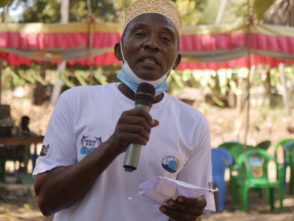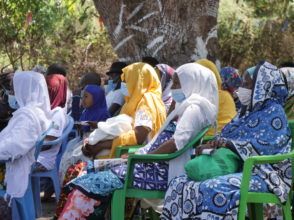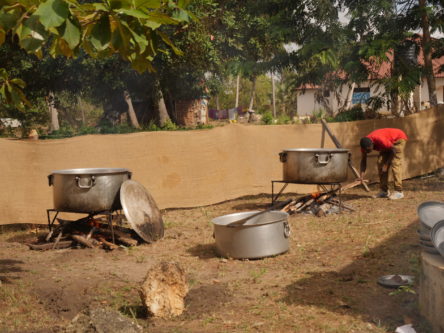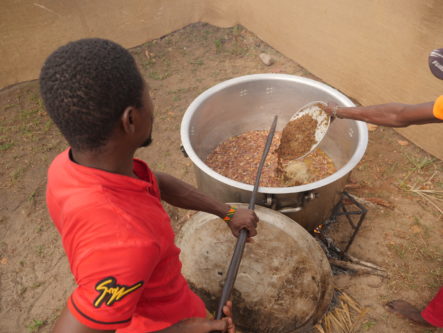The situation
It used to be easy for fishing communities on the Kenyan coast to know when the seasons would change, the winds would peak, and the sea would be safe to access because the weather forecasts were more stable. Fishers could rely on short rainy seasons and a long calm monsoon season, known locally as ‘Kaskazi,’ for periods of extended fishing. But with the increasing effects of climate change making weather more erratic, fishing communities are navigating less safe waters.
In addition to shifting seasons, strong winds make seas rougher and fishing more difficult, or less possible, as dangerous conditions ground boats onshore. Many conservation initiatives respond to the growing threat from climate change by focusing on climate adaptation and mitigation strategies. Blue Ventures is working with its’ partner organisation, Coastal and Marine Resource Development (COMRED), on a challenging project to support communities on the south coast of Kenya and engage them directly in saving marine ecosystems.
Conflicts and conservation
Establishing an LMMA in this area was not easy due to historical injustices around conservation that have included fishing restrictions in areas previously accessed by communities. Previous attempts to introduce conservation areas such as parks, reserves, and LMMAs were unsuccessful, and a top-down conservation approach created tensions between the communities and the government. Many communities felt a strong sense of connection and belonging to the grounds designated for parks and reserves due to generations of ancestors fishing these waters without restrictions.
Our fathers, grandfathers fished in these waters; all we want is to be involved in the management of our fisheries,” said a Munje community member.
Subsequent approaches to management and collaboration have been more inclusive, which has led to attitudes towards implementing conservation measures changing. While scepticism about conservation within some communities remains, in others like the Shimoni-Vanga region, people embrace community-led conservation initiatives and establish LMMAs.
Understanding needs
Most communities depend on fishing as their primary source of income and mainly target pelagic fish species, octopus, and shellfish. Fishing takes place in and around coral reefs accessed by fishers from other areas, which often leads to conflicts between communities over who has ownership rights to these grounds. As Kenya’s population rises and fish stocks fall, community-based approaches are critical to sustainable conservation. In the Shimoni-Vanga area, the Munje fisher community has been embracing the need for marine conservation and sustainable fishing practices.
As primarily artisanal fishers engaging in basket trap, hook and line fishing, and octopus gleaning, all fishers are members of the Munje Beach Management Unit (BMU), which manages all fishing matters. The community also has the Tunusuru conservation group, which comprises women whose primary purpose is mangrove conservation, restoration, and beekeeping as an alternative income-generating activity. The Munje BMU previously set up an octopus and fishery closure area that ended due to other communities using the same fishing grounds and not cooperating.
Turning the tide
Following COMRED’s guidance on improving fisheries management, governance, and conservation, the Munje BMU set up an LMMA focusing on octopus closures to complement other conservation initiatives they had started, such as mangrove restoration and conservation. Establishing this LMMA boosted efforts to improve fishing practices, for example, by using proper fishing gear and the right gear when fishing in and around coral reefs.
Seeing is believing
Peer learning is excellent for bringing change to communities, even when engagement is a complex process, and promoting an inclusive learning platform is the first step towards gaining knowledge. With Blue Ventures’ help, COMRED facilitated a learning visit to the Lamu archipelago, where people from the Munje community learnt from peers from the Pate Marine Community Conservancy (PMCC) in Pate Island.
The three-day learning trip organised in collaboration with the regional coastal office of the Northern Rangeland Trust allowed the Munje BMU members to learn and see about the success of their peers in carrying out community-led conservation. These initiatives included a community-managed marine conservancy with a no-take zone and a temporary octopus fishery closure. Members learnt about mangrove restoration, the blue carbon project, and a community conservation savings and credit scheme. They also saw women gleaning for octopus, an activity that Munje women don’t do, which made the men consider engaging women in more activities.
Having shared similar cultures and religion made the learning process between Pate and Munje communities easier and increased the likelihood of knowledge being applied after the visit.
Applying the knowledge
After seeing the need to preserve fisher livelihoods, the Munje BMU set up an LMMA focusing on octopus closures, with the help of COMRED on behalf of Blue Ventures, the County Government of Kwale, and CORDIO East Africa. The local conservation area was launched on October 28th, 2021, and the community hosted a feast to mark its importance.
Members of the Kenya Wildlife Service and the Kenya Forestry Service attended the event well represented by the Munje community, who were keen to hear ideas from local and regional stakeholders on the way forward.
We want to work with all stakeholders to ensure that we sustainably conserve and manage our fisheries”- Joan Kawaka, Senior researcher, Expert on LMMAs and fisher communities – CORDIO East Africa.
Munje’s LMMA will improve fisheries management and alternative income generation. The community has created a platform to introduce eco-credit schemes that allow the Munje BMU and community members to access personal and community development loans with credits earned by engaging in conservation and fisheries management.
Broadening horizons
Engaging communities in conservation initiatives is a long but increasingly essential journey towards making coastal and indigenous populations that rely on the oceans for survival better equipped to deal with the effects of climate change. We hope to see the implementation of more community-led conservation initiatives and the knowledge learnt to be applied.
Watch the exchange visit film for further insights.


